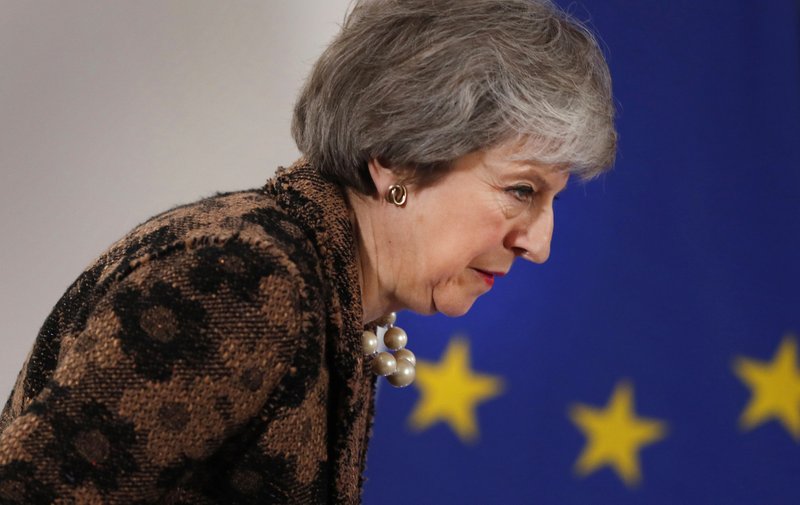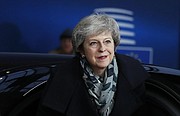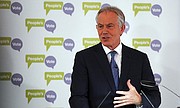LONDON -- Supporters of British Prime Minister Theresa May dampened suggestions Sunday that the government is planning a second referendum on whether to leave the European Union, arguing that another vote on the issue would exacerbate divisions in the U.K., not heal them.
International Trade Secretary Liam Fox told the BBC that holding another vote on Britain's EU membership would settle little in a country that backed leaving the EU in 2016 by 51.9 percent with the highest turnout for a U.K. vote since 1992.
"Suppose we had another referendum. Supposing the 'remain' side won it by 52 to 48, but it was on a lower turnout -- entirely possible," Fox said. "If there is another referendum, which I don't think there will be, people like me will be immediately demanding, 'It's best of three.' Where does that end up?"
The comments come as Britain struggles for a way forward after days of political drama because of unease with the terms of May's deal to leave the 28-nation bloc. The British Parliament was supposed to vote on May's exit plan last week, but she postponed it after it became clear that lawmakers would decisively reject it.
Lawmakers were angry about not having a chance to have their say. May's own Conservative Party triggered a confidence vote in her party leadership, which she won, but a third of her party's lawmakers revolted against her.
May will face a hostile House of Commons -- and further calls for another referendum -- today after her appeals for help from EU leaders were rejected at a summit in Brussels on Friday.
May faced reports in the Sunday Times that said her unofficial deputy, Cabinet Office Minister David Lidington, held talks with Labor lawmakers aimed at holding another exit vote.
In response, Lidington tweeted a link to a record of parliamentary proceedings in which he explained how a second vote could be "divisive not decisive."
May's chief of staff, Gavin Barwell, tweeted "Happy to confirm I am not planning a 2nd referendum with political opponents (or anyone else to anticipate the next question)."
The idea of a national vote is gaining traction with both those who hope it would stop the U.K. from leaving the EU and those who see it as a threat that will bring exit supporters behind May's plan.
With little time to resolve the impasse before Britain's departure from the EU on March 29, fears are growing that Britain could leave the bloc with no deal at all -- a situation with potentially devastating consequences for the U.K. economy.
Underscoring the acrimony in the nation over the departure, May and former Prime Minister Tony Blair of the Labor Party traded gibes in the media.
May accused Blair of "undermining" her efforts to deliver the EU exit by calling for a second referendum on whether to leave. May criticized Blair for championing a "People's Vote."
"For Tony Blair to go to Brussels and seek to undermine our negotiations by advocating for a second referendum is an insult to the office he once held and the people he once served," May said in a statement released by her office. "We cannot, as he would, abdicate responsibility for this decision."
Blair shot back, saying he had a right to comment on "the most important decision our country has taken since the end of World War II."
"What is irresponsible, however, is to try to steamroller MPs into accepting a deal they genuinely think is a bad one with the threat that if they do not fall into line, the government will have the country crash out without a deal," Blair said.
The Labor Party said it will press for May's deal to face a vote in Parliament this month and is still considering the best time to submit a no-confidence motion against the government to enhance its chances of winning a majority in the House of Commons.
"We've been assessing on a daily basis the time we would achieve a successful outcome," Rebecca Long-Bailey, the party's business spokesman, told Sky News. "What we want is an outcome rather than it just being a bit of parliamentary drama."
Information for this article was contributed by Danica Kirka of The Associated Press; and by Thomas Penny of Bloomberg News.
A Section on 12/17/2018


